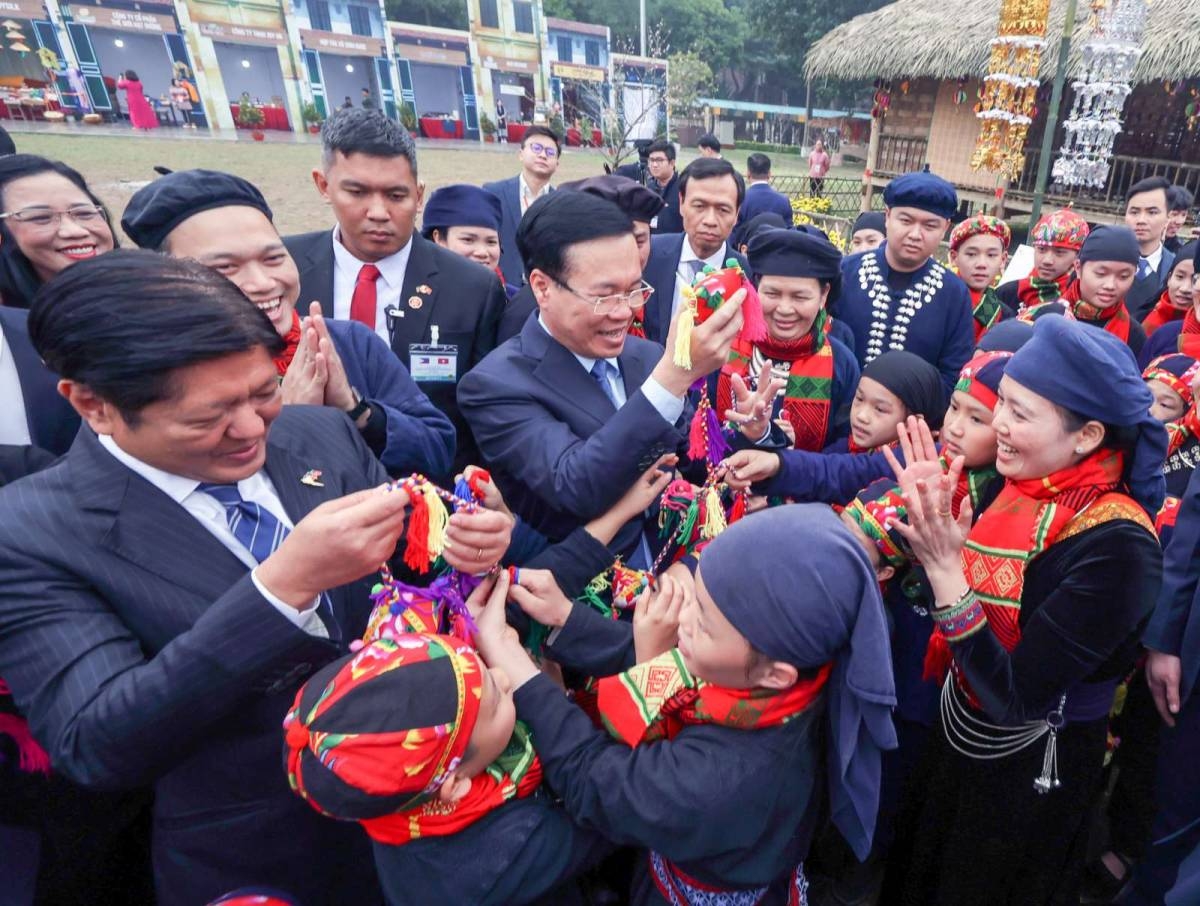HANOI: In a significant move to foster peace and prosperity in the Southeast Asian region, the Philippines and Vietnam signed several bilateral documents on rice, trade, and cultural cooperation. The agreements also addressed the important issue of incident prevention and management in the South China Sea. This development marks a crucial step towards enhancing coordination and understanding between the two nations.
One of the most notable agreements is the memoranda of understanding between the Department of Foreign Affairs (DFA), the Philippine Coast Guard (PCG), and their Vietnamese counterparts. These memoranda aim to strengthen peace and prosperity not only between the Philippines and Vietnam but also for the entire Southeast Asian region. The signing ceremony was witnessed by President Ferdinand Marcos Jr. and Vietnamese President Vo Van Thuong, emphasizing the significance of the occasion.
DFA Secretary Enrique Manalo exchanged documents with Minister Bui Thanh Son on Incident Prevention and Management in the South China Sea. It is important to note that Vietnam, along with the People’s Republic of China (PRC), Taiwan, Brunei, Malaysia, and the Philippines, is one of the claimants of the contested waterway. By signing this agreement, both nations demonstrate their commitment to effectively manage and prevent incidents in the South China Sea.
The agreements also highlight the importance of cooperation in maritime issues. The Philippines and Vietnam have agreed to enhance coordination bilaterally, within the Association of Southeast Asian Nations (ASEAN), and with other dialogue partners. This collaborative approach will help address the complex challenges and ensure the stability and security of the region’s maritime domain.
Another significant aspect of the bilateral agreements is the focus on maritime cooperation between the Philippine Coast Guard (PCG) and the Vietnam Coast Guard (VCG). PCG commandant Adm. Ronnie Gil Gavan and VCG commander Maj. Gen. Le Quang Dao exchanged documents to strengthen understanding, mutual trust, and confidence. The establishment of a Joint Coast Guard Committee will facilitate discussions on common issues and interests. Additionally, a hotline communication mechanism will be established between the PCG and VCG, further enhancing cooperation and coordination in maritime matters.
In addition to the maritime agreements, the Philippines and Vietnam also signed agreements on Rice Trade Cooperation, Cooperation in Agriculture and Related Fields, and Cultural Cooperation. These agreements reflect the commitment of both countries to strengthen their economic and cultural ties.
Under the Rice Trade Cooperation agreement, Vietnam has committed to supplying rice to the Philippines for a period of five years. The annual supply is expected to range from 1.5 million to 2 million metric tons. This agreement ensures a stable and reliable source of rice for the Philippines, addressing the country’s food security concerns.
The agreements on Cooperation in Agriculture and Related Fields aim to promote collaboration in agricultural research, technology transfer, and capacity building. By sharing knowledge and expertise, both countries can enhance their agricultural sectors and contribute to food security in the region.
Lastly, the Cultural Cooperation agreement signifies the importance of cultural exchange and understanding between the Philippines and Vietnam. This agreement will facilitate the exchange of artists, cultural groups, and exhibitions, promoting mutual appreciation and friendship between the two nations.
In conclusion, the bilateral agreements signed between the Philippines and Vietnam encompass various crucial aspects, including rice trade, trade cooperation, and cultural exchange. These agreements not only strengthen the ties between the two nations but also contribute to regional peace, stability, and prosperity. The commitment to incident prevention and management in the South China Sea, as well as enhanced maritime cooperation, reflects the shared vision of both countries for a secure and prosperous Southeast Asian region.







